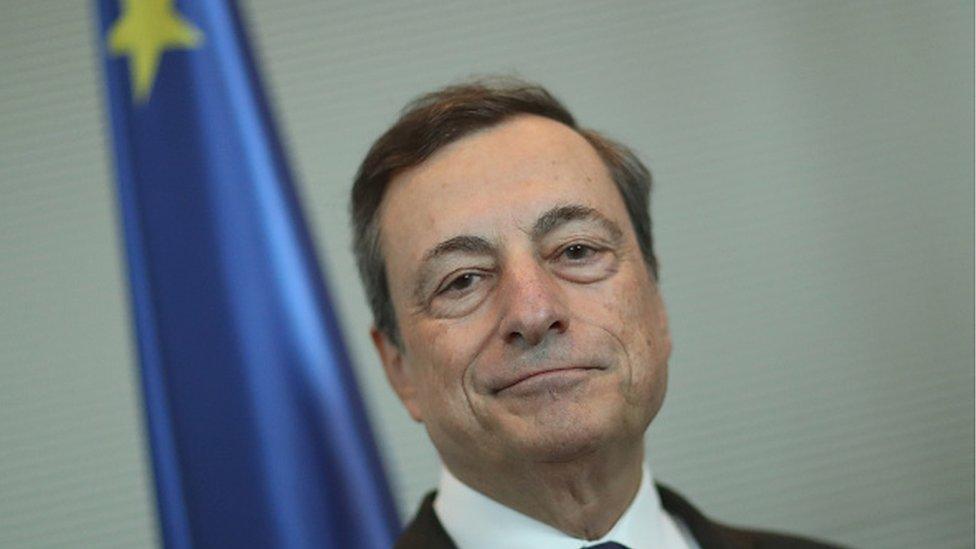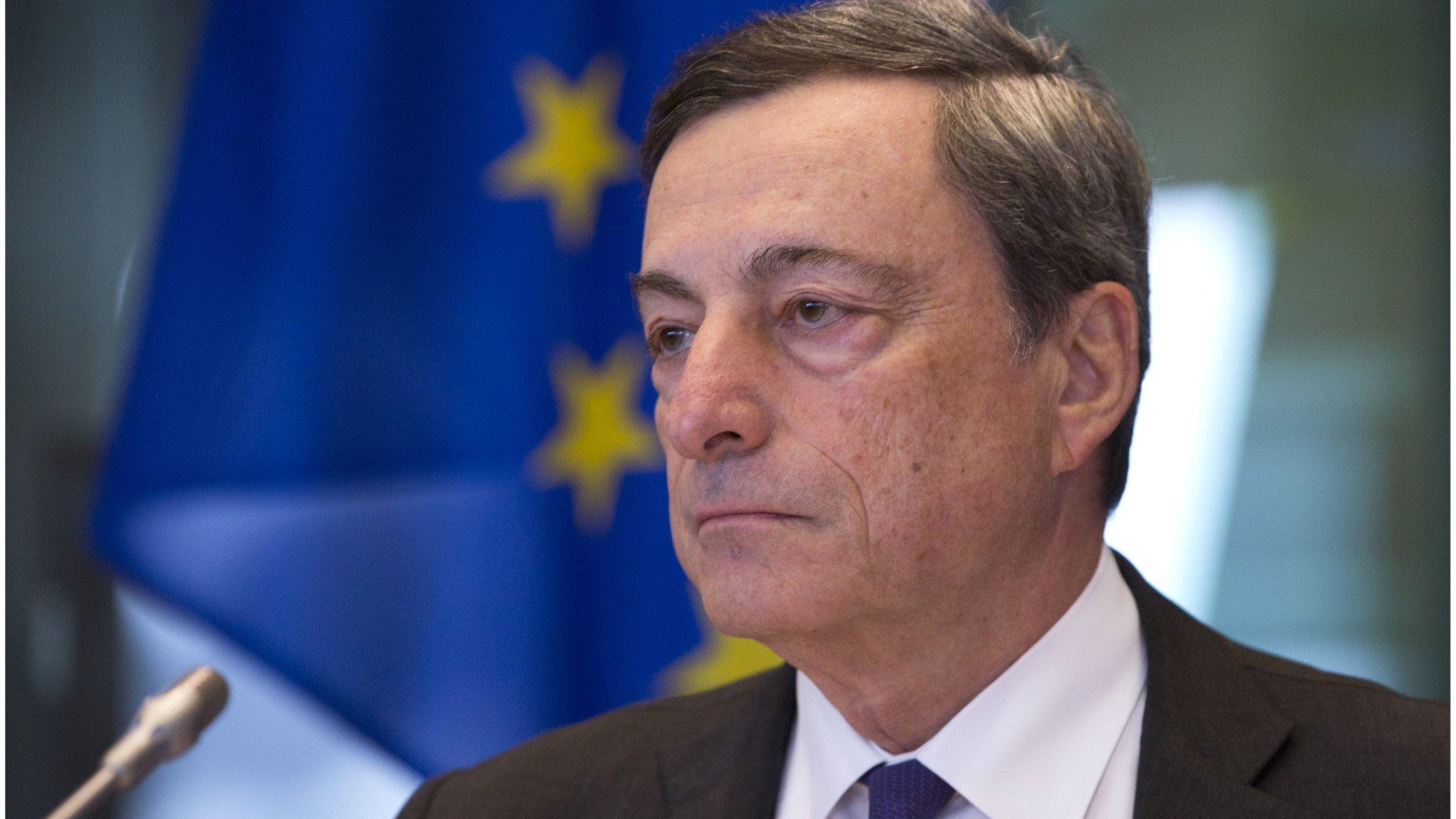ECB to discuss future of bond buying scheme in December
- Published

The European Central Bank (ECB) will discuss how to end its monthly €80bn (£71bn) bond-buying programme in December after leaving it unchanged.
The ECB held the euro area's key interest rate in October and maintained its quantitative easing (QE) scheme which is due to run until March 2017.
President Mario Draghi said there had not, so far, been talks on ending QE.
However, he signalled it would be discussed in December and is likely to be gradually wound down, or "tapered".
Mr Draghi said: "Our decisions in December will tell you what we are going to do. That will define the monetary policy environment for the coming weeks and coming months."
'Smooth implementation'
Mr Draghi said it was "unlikely" that there would be an abrupt end to the bond-buying programme.
He said that the ECB was waiting until December to address the issue because "we want to see all the inputs that are useful to have this discussions" which will "ensure the smooth implementation of our purchase programme until March 2017 or beyond if necessary".
Markets have been searching for clues on whether the ECB will extend the QE programme beyond March next year. Eurozone inflation is rising, up to 0.4% in September, while economic growth is slowing from 0.5% in the second quarter to 0.3% in the three months to September.
Unanswered questions
Mr Draghi warned that the European economy was vulnerable to downside risks including "subdued foreign demand". He added: "We will continue to act, if warranted, by using all the instruments available within our mandate."
James Athey, fixed income investment manager at Aberdeen Asset Management, said: "This was not Draghi's finest hour. He really wanted to shut down any suggestion that the ECB is going to taper any time soon. But he what he actually did was to tell people to come back in December and see what the ECB thinks then.
"That will leave enough unanswered questions to keep bond markets volatile. An already nervous market will not take much comfort from his obfuscation today."
Growth risks
Commenting on the European economy, Mr Draghi said: "The economic recovery in the euro area is expected to be dampened by still subdued foreign demand, the necessary balance sheet adjustments in a number of sectors and sluggish pace of implementation of structural reforms.
"The risks to the euro area growth outlook remain tilted to the downside and relate mainly to the external environment."
He was speaking as UK Prime Minister Theresa May arrived in Brussels for her first European Union summit since taking office, following the British vote to leave the EU.
She said: "This is my first European Council and I'm here with a very clear message: The UK is leaving the EU but we will continue to play a full role until we leave and we'll be a strong and dependable partner after we have left.
"It's in the interests of both the UK and the EU that we continue to work closely together, including at this summit."
- Published20 October 2016
- Published18 October 2016
- Published26 September 2016
